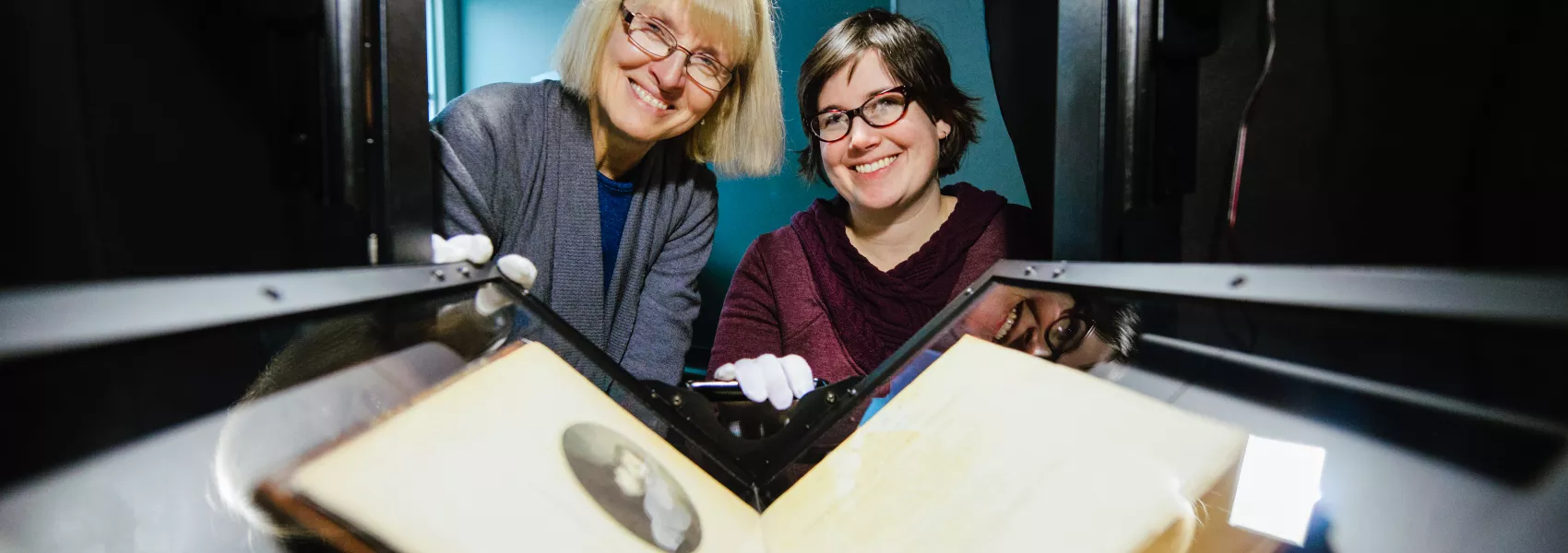
History
Explore the cause and effect of critical events throughout history such as warfare, activism, exploration, culture and science.
Historians study what people have thought, said, and done in the past. You will learn to think critically about the historical processes that shape the present.
As a history major, you will develop the knowledge needed to pursue careers in law, education, journalism, civil service, politics, museum and library archives, or post-secondary professorship.
120 credits, 4 Years,
Part-time available
Program Details
This degree draws on almost every time period, theory and geographical space. Choose from a variety of subjects, including the record of First Nations in Canada, women in European medieval society, and history of law, or delve into religious, race and economic issues that span global borders.
Our faculty bring a mix of methodologies to their instruction—you are encouraged to follow your personal interests in course selection and independent research. The department offers specialized courses in the history of law, crime and punishment.
Career Paths
- Lawyer
- Museum curator
- Archivist
- Heritage site manager
- Journalist
Why at UNBC
- Considering law school? A large percentage of law students in Canada complete their undergraduate degree in history
- Take specialized courses in the history of law, crime and punishment
- Access to research assistantships
'En Cha Huná
UNBC’s motto, from the Dakelh (Carrier) Elders, reminds us that all people have a voice and a viewpoint. Interpreted as “respecting all forms of life,” 'En Cha Huná encapsulates the spirit of academic freedom, respect for others, and willingness to recognize different perspectives.
Subscribe for updates
Receive personalized emails about your programs of interest, scholarships, application dates and more!
Admission Requirements
High School Requirements (applicable to B.C. and Yukon)
Overall average of 65% minimum in the following;
- English Studies 12 or English First Peoples 12
- Approved Academic Grade 12 Course
- Approved Academic Grade 12 Course
- Approved Academic Grade 12 Course
- Additional Grade 12 Course (Elective or Academic)
View the full list of approved academic grade 12 courses.
More high school admission requirements (including out-of-province, International Baccalaureate and Advanced Placement)
Transfer Requirements
- Have attempted at least 15 credit hours of post-secondary transferable coursework from a recognized institution.
- Be in good academic standing at the transfer institution.
- Have a 2.0 GPA from the most recent 30 credits prior to transfer.
- For the purposes of verifying any outstanding first-year prerequisites, high school transcripts may be requested.
International Student Requirements
- Meet UNBC's English language requirements
- Meet the international admission requirements by country or meet the admission with a General Certificate of Education (or equivalent)
- Complete the required high school course equivalencies outlined in the Domestic tab prior.
Transfer Requirements
- Have attempted at least 15 credit hours of post-secondary transferrable coursework from a recognized institution
- Be in good academic standing at the transfer institution
- Have a 2.0 GPA from the most recent 30 credits prior to transfer
- For the purposes of verifying any outstanding first-year prerequisites, high school transcripts may be requested
Tuition and Fees
Approximate Costs per Academic Year
(30 credit hours, 10 courses)
| Domestic | International | |
|---|---|---|
| Tuition* | $5,985 | $26,750 |
| Student fees* | $1,125 | $1,315 |
| Books* | $1,400 | $1,400 |
* Tuition, fees and books are subject to change and vary among programs.
Scholarships, Bursaries and Awards
View the hundreds of available scholarships, bursaries, and awards.
- 1 in 3 students receive a UNBC financial award.
- $4,000,000 in financial awards given each year.
Important Dates
We Are Here to Help
This is your personal guide through every step of the admissions process. We are here for one reason: to support you. We help every part of the admissions process make sense. Just ask us.
Email: futurestudents@unbc.ca
Phone: 250-960-6306